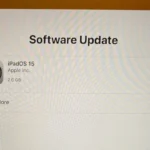Node.js 21 marks a significant update to the JavaScript runtime that has become essential for developers. It introduces several features and improvements that enhance its performance and capabilities. This new version has updated the V8 JavaScript engine to version 11.8 and brings exciting features like stable Fetch API and WebStreams. It also offers a built-in WebSocket client, which simplifies real-time communication for applications.
The community around Node.js continues to grow, reflecting in the regular updates that keep the platform modern and responsive to developer needs. Among these updates, Node.js 21 presents a notable change that allows developers to switch module defaults using an experimental flag. This enhancement underscores Node.js’s commitment to embracing modern JavaScript practices.
Node.js 21: A New Era for Server-Side JavaScript
Node.js 21, released in October 2023, marks a significant milestone in the evolution of server-side JavaScript. It brings a slew of enhancements that streamline development, boost performance, and improve error handling. Let’s delve into the key features and optimizations that make Node.js 21 a game-changer.
Enhanced Performance and Stability
Node.js 21 gets a performance boost thanks to an upgraded V8 engine (v11.8). This means faster execution of your JavaScript code, leading to more responsive applications and a smoother user experience. The Streams API also sees a significant speedup of about 10% due to optimizations like eliminating redundant checks and using bitmaps for efficient scheduling.
Stable Fetch and Web Streams API
The Fetch API, initially experimental, is now stable in Node.js 21. This simplifies making HTTP requests and handling responses, bringing Node.js closer to web browser APIs. The Web Streams API, also now stable, enables efficient handling of streaming data, a crucial aspect of many modern applications.
Built-in WebSocket Client
Node.js 21 introduces a built-in WebSocket client, making real-time communication a breeze. This eliminates the need for external libraries, simplifying development and reducing dependencies.
Key Features of Node.js 21:
| Feature | Description |
|---|---|
| V8 Engine Upgrade | Faster JavaScript execution and access to the latest JavaScript features. |
| Stable Fetch API | Simplified HTTP requests and responses. |
| Stable Web Streams API | Efficient handling of streaming data. |
| WebSocket Client | Built-in support for real-time communication. |
| Test Runner Enhancements | Improved test running with support for globs and other features. |
| Performance Optimizations | Faster Streams API, reduced overhead in HTTP responses, and other under-the-hood improvements. |
Improved Developer Experience
Node.js 21 enhances the developer experience with improvements to the test runner, now supporting globs for easier test selection. The updated documentation and improved error messages also contribute to a smoother development process.
In conclusion, Node.js 21 represents a significant step forward for server-side JavaScript. With enhanced performance, stabilized APIs, and improved developer tools, it empowers developers to build faster, more efficient, and more reliable applications.
Key Takeaways
- Node.js 21 introduces significant performance enhancements and features.
- A major update includes the V8 engine version 11.8.
- The release provides a built-in WebSocket client and new module handling.
Exploring Node.js 21
With the arrival of Node.js 21, developers gain new features, performance improvements, and enhanced security. This latest version brings numerous changes that streamline development and deployment in server-side applications.
Key Features and Updates
Node.js 21 introduces the V8 JavaScript engine version 11.8, which enhances the performance of JavaScript execution. The built-in WebSocket client brings real-time communication capabilities to Node.js without external libraries. The fetch API is now stable, allowing HTTP requests to be made natively similar to the way it is done in web browsers. An experimental --experimental-default-type flag exists. This allows developers to switch their module interpretation from CommonJS to ECMAScript modules, or ESM, more easily.
Performance Enhancements
Improvements to Node.js 21 revolve around making it faster and more efficient. With the V8 engine update, JavaScript runs quicker. This contributes to higher overall server performance. The development team also has focused on optimizing Node’s core modules and the test runner for better performance in production environments.
Developer and Community Insights
Feedback from developers and the community has been vital in shaping Node.js 21. Their insights inform new features and optimizations. The Node.js team encourages developer participation in their evolution process. They welcome contributions through GitHub to continuously improve Node.js.
Compatibility and Integration
Compatibility is critical with new Node.js versions. Node.js 21 ensures seamless integration with existing codebases using HTTP/2 and newer language features. It offers support for the latest ECMAScript standards, improving compatibility with modern JavaScript development practices.
Advanced Functionality and Ecosystem
The integration of new APIs like fetch and advancements in the V8 engine boosts Node.js capabilities. These updates enable more complex and high-performing web applications. The new features expand the server-side JavaScript ecosystem, providing developers more tools for efficient coding.
Deployment and Security
Security is a top priority in Node.js 21. Features are implemented with careful consideration of security risks. It is recommended to use Node.js in secure production environments. The built-in cryptographic functions have become more robust to safeguard against threats.
Best Practices and Usage Scenarios
For developers maintaining existing applications or starting new projects, Node.js 21 offers improved best practices. Example scenarios include developing microservices, streaming platforms, and real-time chatbots. Developers should use the built-in features and functions to enhance application efficiency and maintainability.
Versioning and Download Information
The release of Node.js 21 follows the semantic versioning guidelines, and it’s not an LTS (Long Term Support) version yet. To download the latest version, developers can visit the official Node.js website or use npm to upgrade their installations. It is crucial to verify downloads using the GPG key to ensure authenticity.







